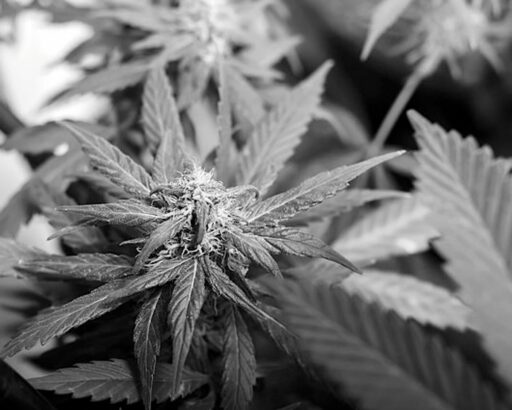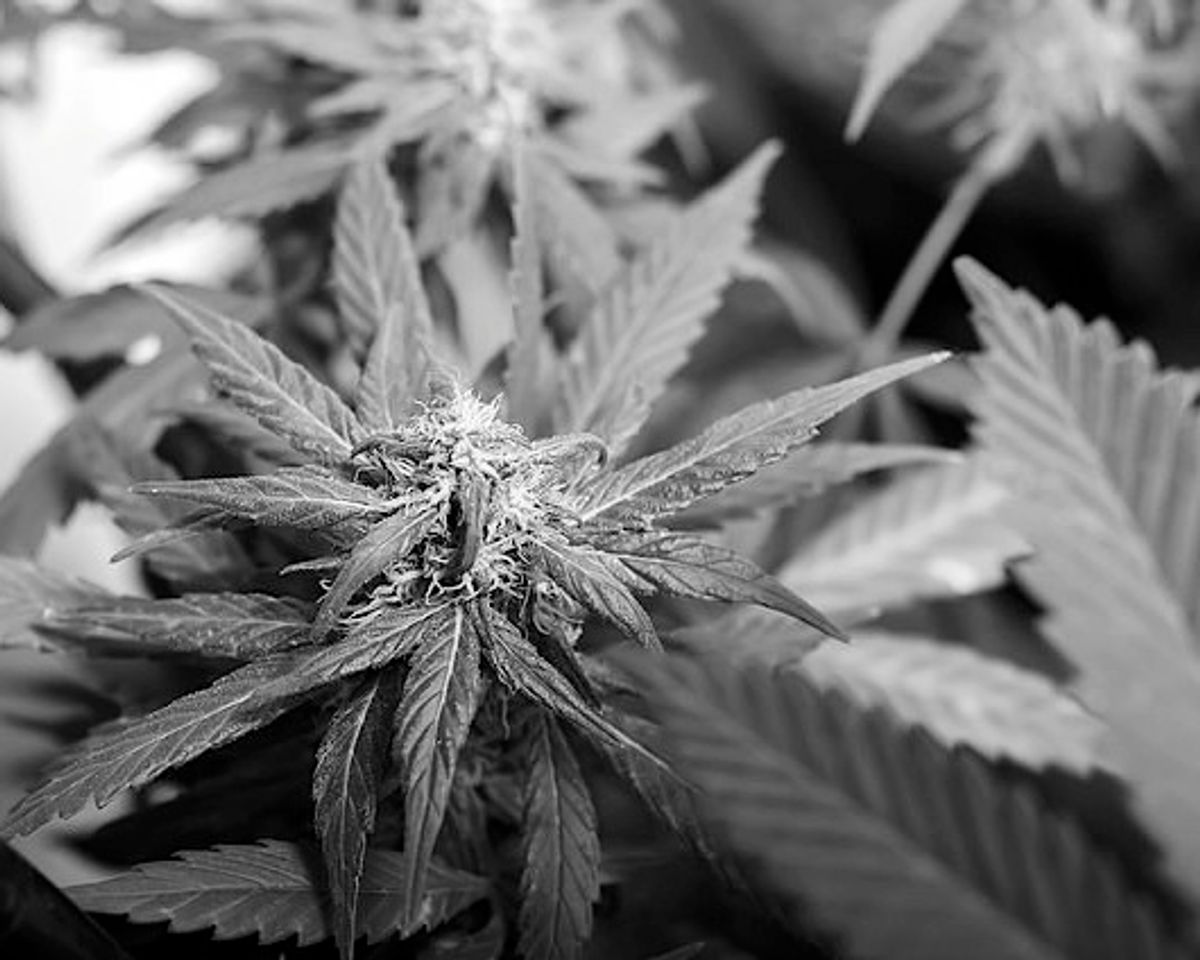Illinois has taken a significant step towards a greener future with the legalization of marijuana, a move that is poised to have far-reaching effects on the state’s economy, social justice, and public health. This article delves into the various dimensions of cannabis legalization in Illinois, examining its historical context, economic implications, and the transformative impact on criminal justice and consumer markets. As the state navigates this new terrain, we explore the key developments and challenges that lie ahead.
Key Takeaways
- Illinois’ shift from cannabis criminalization to legalization reflects changing public perceptions and aims to address past harms of the War on Drugs.
- Legalization presents economic opportunities for Illinois, including potential tax revenue generation, job creation, and savings from reduced incarceration costs.
- Social and criminal justice reforms, such as expungement of marijuana convictions, are central to the state’s approach, seeking to rectify historical injustices.
- Consumer education is crucial as the market evolves, with businesses like The Happy Cannabis Company leading by example in customer experience and product diversity.
- Illinois is poised for future legislative changes, with ongoing comparisons to other states’ cannabis laws informing the trajectory of regulation and oversight.
The Historical Context of Cannabis Criminalization in Illinois

The War on Drugs and Its Impact on Illinois
The War on Drugs, initiated in the 1970s, has had a profound and lasting impact on Illinois. The state’s drug policies have historically emphasized punitive measures over rehabilitation. A significant portion of drug arrests were for possession, with marijuana charges comprising a notable percentage. The financial toll on Illinois has been substantial, with millions of dollars invested annually in enforcement rather than in potentially more effective alternative programs.
The focus on punitive measures rather than prevention or treatment has led to a cycle of incarceration and re-incarceration, without addressing the root causes of drug use.
The racial disparities in drug convictions have also been a point of contention, with minority communities disproportionately affected by stringent drug laws. The economic and social costs of these policies have prompted a reevaluation of the state’s approach to drug offenses, particularly those involving cannabis.
Table: Illinois Drug Arrest Statistics (2005)
| Offense Type | Percentage |
|---|---|
| Drug Possession | 81.7% |
| Marijuana Charges | 42.6% |
The Shift in Drug Policy and Public Perception
As Illinois transitions from prohibition to legalization, the shift in drug policy reflects a broader change in public perception towards marijuana. The focus has moved from criminalization to regulation and public health, recognizing the need for a more compassionate and pragmatic approach to drug use.
- The War on Drugs has historically enforced punitive measures over rehabilitative ones.
- Recent reforms advocate for harm reduction and health-focused strategies.
- Public opinion has increasingly favored legalization, viewing it as a means to correct past injustices and promote social equity.
This evolution in mindset is not just a legal transformation but a cultural one, signaling a departure from stigmatization to a more understanding and inclusive perspective on cannabis users.
However, the promise of equity in the burgeoning cannabis market has not been fully realized. The Politico article titled ‘How marijuana legalization failed inner-city communities’ highlights a concerning trend: most cannabis license holders are wealthy and white, despite vows to bring equity to communities most affected by the drug war.
Evolving Legal Landscape: From Prohibition to Legalization
The journey from prohibition to legalization in Illinois reflects a broader national trend of reevaluating cannabis laws. The Marihuana Tax Act of 1937 marked the beginning of federal cannabis regulation, which evolved into outright prohibition with the Controlled Substances Act of 1970. Illinois, like many states, adhered to these stringent federal guidelines for decades.
However, recent years have witnessed a seismic shift in attitudes towards cannabis. Illinois has been at the forefront of this change, with significant legislative reforms that have altered the legal status of cannabis. The state’s move to legalize marijuana for recreational use is not just a legal transformation but also a cultural one, signaling a departure from the punitive approaches of the past.
The legalization of cannabis in Illinois is a testament to the changing perceptions and growing acceptance of marijuana in mainstream society.
This transition has been marked by a series of legislative milestones:
- The decriminalization of small amounts of marijuana in 2016.
- The introduction of the medical cannabis pilot program.
- The legalization of recreational marijuana in 2019, which came into effect on January 1, 2020.
These steps represent a progressive shift towards a more rational and humane approach to cannabis policy, one that prioritizes public health and safety over criminalization.
Economic Implications of Marijuana Legalization

Potential Savings and Revenue for Illinois
The legalization of marijuana in Illinois opens the door to significant economic benefits, including potential savings and revenue generation. A study by the Roosevelt University’s Institute for Metropolitan Affairs suggests that with an investment of $20 million in alternative incarceration programs, Illinois could save between $50 and $150 million annually. This reflects a broader trend observed in other states that have embraced similar reforms.
The economic impact of marijuana legalization is multifaceted, encompassing savings from reduced incarceration costs and new income from taxes and fees. For instance, Kentucky and West Virginia reported savings of $56.6 million and $54.4 million, respectively, after implementing laws akin to those in Illinois. These savings are coupled with the standard dispensing fees paid to pharmacies, which provide crucial support to local businesses.
The shift towards a legal marijuana market in Illinois is not just about the revenue it generates, but also about the cost savings and economic efficiencies it introduces.
The potential for revenue generation is equally promising. Projections based on other states’ experiences suggest that Illinois could see substantial financial gains from taxation and regulation of the cannabis industry. The exact figures will depend on the specifics of Illinois’ legislation and market dynamics, but the trend is clear: legalization has the power to bolster the state’s economy.
Job Creation and the Cannabis Industry’s Growth
The legalization of marijuana in Illinois has not only altered the legal landscape but has also sparked significant job creation within the state. The cannabis industry has become a robust engine for employment, offering a wide range of opportunities from cultivation and sales to ancillary services that support the sector.
The industry’s commitment to social equity and justice is evident in initiatives like loan applications for licensed social equity cannabis organizations. These efforts aim to ensure that the benefits of legalization are shared across communities, particularly those historically impacted by cannabis criminalization.
Here’s a snapshot of the job market evolution in the cannabis industry:
- Cultivation and harvest technicians
- Dispensary managers and staff
- Compliance officers
- Marketing and sales professionals
The cannabis industry’s growth is not just about profit; it’s about fostering a community that values social equity and provides economic empowerment to its members.
Challenges and Opportunities in Cannabis Business
The legalization of marijuana in Illinois has opened a new frontier for entrepreneurs, but it’s not without its challenges. Navigating the complex regulatory environment is a daunting task for many, especially for those new to the industry. Compliance with state laws and local ordinances is critical, and businesses must stay informed about the ever-evolving legal landscape.
However, the opportunities are significant. The cannabis market is ripe for innovation and growth, with a demand for a wide range of products and services. Entrepreneurs can capitalize on this by introducing unique offerings and experiences to consumers. For instance, the Marijuana News website features articles on cannabis culture, which indicates the breadth of interest in the sector.
To ensure a robust and equitable industry, several steps can be taken:
- Encourage gender diversity in leadership positions.
- Provide resources and funding tailored to women entrepreneurs in the cannabis industry.
- Offer educational programs addressing the unique needs of women in the industry.
Women in cannabis often bring diverse perspectives and skills, promoting inclusivity and empowerment. Their role is crucial in breaking stereotypes and fostering community within the cannabis space.
Social and Criminal Justice Reforms

Expungement and Resentencing of Marijuana Convictions
The legalization of marijuana in Illinois has opened the door to significant criminal justice reforms, particularly in the area of expungement and resentencing of marijuana convictions. This pivotal shift acknowledges the disproportionate impact that drug-related offenses have had on certain communities and aims to rectify past injustices.
With the new legislation, individuals with past marijuana-related offenses are given a chance to start anew, as their records are reviewed for potential dismissal or reduction. This process is not just a symbolic gesture but a practical move towards social equity and rehabilitation.
The following table outlines the impact of resentencing efforts post-legalization:
| Year | Number of Cases Reviewed | Number of Cases Expunged |
|---|---|---|
| 2021 | 10,000 | 3,500 |
| 2022 | 15,000 | 5,000 |
These numbers reflect a growing commitment to reforming the criminal justice system and providing relief to those who have been affected by previous drug policies. The path to a fairer legal landscape is being paved, one expungement at a time.
The Role of Public Health in Shaping Cannabis Policy
The integration of public health principles into cannabis policy is essential for ensuring the safety and well-being of consumers. Public health considerations guide regulations on production practices, product safety, and consumer education. For instance, labeling requirements and safety instructions are crucial for preventing misuse and protecting consumers from potential harms.
In Illinois, public health initiatives have influenced cannabis policy to include measures such as protection from criminal penalties for using cannabis for a medical purpose and access to cannabis through various systems. These efforts aim to balance the need for access with the importance of regulation to prevent abuse and negative health outcomes.
The focus on public health in cannabis policy reflects a commitment to addressing the complexities of legalization while prioritizing the health of Illinois residents.
The table below outlines key public health components addressed in Illinois cannabis policy:
| Component | Description |
|---|---|
| Labeling and Safety | Ensures products meet health standards and consumers are informed. |
| Access Control | Regulates who can obtain cannabis and how it is distributed. |
| Medical Use Protection | Shields patients from penalties and provides access routes. |
| Consumer Education | Promotes awareness of cannabis effects and responsible use. |
Ensuring Equity in the Legal Marijuana Market
As Illinois continues to develop its legal marijuana market, a key focus has been on ensuring equity within the industry. This includes initiatives aimed at supporting woman- and POC-owned dispensaries, which are now more prevalent than ever. However, the journey towards a truly equitable market is ongoing, with critics highlighting that further efforts are necessary.
To promote a more balanced industry, several strategies have been put in place:
- Promote equal representation in leadership and decision-making roles.
- Support women-owned businesses with tailored resources and funding.
- Prioritize education and training for women in the cannabis industry.
The Illinois marijuana industry is striving to overcome historical disadvantages and biases, aiming to create a diverse and inclusive environment for all entrepreneurs.
The state’s approach has been to implement race-neutral policies that assist "historically economically disadvantaged communities." This includes micro business provisions that are designed to level the playing field and provide financial benefits from marijuana legalization to those most affected by past drug policies.
Consumer Education and Market Evolution

The Importance of Informed Consumer Choices
As the cannabis market in Illinois continues to mature, consumer education has become paramount. With a diverse range of products and varying levels of potency, it’s essential for consumers to understand what they are purchasing and consuming. This knowledge not only ensures a safer experience but also empowers individuals to make choices that best suit their needs and preferences.
In the context of cannabis potency, education is key. Consumers should be aware of the effects that different levels of THC and CBD can have on their bodies. For instance, a product with high THC content may offer a more intense experience, which might not be suitable for everyone. Conversely, a product with higher CBD may be sought after for its potential therapeutic benefits without the psychoactive effects.
To aid in this educational process, dispensaries and retailers can provide literature and trained staff to guide consumers. Additionally, workshops and seminars can be an effective way to disseminate information about safe consumption practices and the latest research findings.
The informed consumer is one who can navigate the evolving landscape of cannabis products with confidence, ensuring a positive and safe experience.
Navigating the Diverse Range of Cannabis Products
With the legalization of marijuana in Illinois, consumers are now faced with a vast array of cannabis products that cater to different preferences and needs. From traditional flower strains to edibles and topicals, the choices can be overwhelming for both new and experienced users.
The state has not only decriminalized the recreational use of marijuana but has also embraced a comprehensive legalization framework. This evolution has given rise to a new consumer experience, where education and guidance are paramount.
Understanding the nuances of each product is crucial. Here’s a quick guide to some popular types of cannabis products:
- Flower: The classic form of cannabis, often smoked or vaporized.
- Edibles: Foods infused with cannabis, offering a longer-lasting effect.
- Topicals: Creams and balms for localized relief without psychoactive effects.
- Concentrates: Potent products like oils and waxes used in small quantities.
As the market evolves, so does the importance of catering to diverse consumer groups. Women, for instance, have become a significant demographic, influencing product development and marketing strategies.
The Happy Cannabis Company: A Case Study in Customer Experience
The Happy Cannabis Company, nestled in Loves Park, Illinois, has become a beacon for consumer education and satisfaction in the cannabis market. Their approach to demystifying the cannabis buying process through a stress-free, educational shopping environment has resonated with both seasoned users and newcomers. The company’s diverse product lineup is a testament to their commitment to meet consumer needs.
The ethos of the Happy Cannabis Company is rooted in health and happiness, drawing inspiration from the positive impact of cannabis on medical users and the joy it brings to recreational consumers.
The staff’s dedication to customer service is evident in the return of customers with success stories, which fuels the team’s passion and validates the importance of their work. Below is a list of some of the favorite products that have shaped the customer experience at the Happy Cannabis Company:
- KING LOUIE XIII from &SHINE
- RYTHM Kosher Kush Flower
- incredibles 1:1 Black Cherry Dark Chocolate Bar
These products, among others, highlight the company’s ability to cater to a wide range of preferences and the importance of a curated selection in fostering a positive customer journey.
The Road Ahead for Illinois’ Cannabis Legislation

Upcoming Legislative Changes and Their Potential Impact
As Illinois continues to navigate the complexities of a legal cannabis market, upcoming legislative changes are poised to shape the industry’s trajectory. The state’s lawmakers are tasked with addressing the intricacies of social equity licenses, a challenge underscored by the looming deadline for extending these licenses to avoid a political quagmire.
The legislative landscape is dynamic, with amendments and new bills frequently introduced to refine cannabis regulations. These changes aim to streamline processes, enhance consumer safety, and ensure a fair market.
Key legislative proposals under consideration include:
- Revisions to social equity licensing procedures
- Enhanced safety regulations for cannabis products
- Clearer guidelines for the operation of dispensaries
Understanding these potential changes is crucial for stakeholders, as they will influence business operations, consumer experiences, and the overall health of the cannabis industry in Illinois.
Comparative Analysis with Other States’ Cannabis Laws
As Illinois continues to navigate the complexities of marijuana legalization, it is instructive to look at how other states have approached the issue. The diversity in policy across states reflects a patchwork of regulations that cater to local values and concerns. For instance, as of April 2023, 38 states allow medical use of cannabis, while 24 states have legalized non-medical adult use.
Comparing taxation strategies reveals significant differences that can influence market dynamics:
| State | Medical Tax Rate | Adult-Use Tax Rate |
|---|---|---|
| California | Low/None | High |
| Colorado | Low | Moderate |
| Illinois | Moderate | Moderate |
The variations in tax rates, coupled with differing regulatory frameworks, create a competitive landscape where states learn from each other’s successes and challenges.
Illinois can draw valuable insights from states like Colorado, which has a robust reporting system on marijuana sales and taxes, and California, which has navigated the complexities of cooperative and collective models. The experiences of these states can inform Illinois’ efforts to refine its own cannabis policies and regulations.
The Future of Cannabis Regulation and Oversight in Illinois
As Illinois continues to navigate the complexities of a regulated cannabis market, the future holds both challenges and opportunities for lawmakers and stakeholders. The evolution of cannabis legislation will be pivotal in shaping the industry’s trajectory and ensuring that the benefits of legalization are equitably distributed across communities.
With an eye on public health and social equity, the state is poised to refine its regulatory framework. Recent initiatives, such as loan applications for licensed social equity cannabis organizations, underscore the commitment to support underrepresented entrepreneurs in the burgeoning market. Eligible applicants, including social equity Conditional and Adult Use Dispensing Organizations, are encouraged to participate, fostering a more inclusive industry.
The ongoing dialogue between policymakers, industry experts, and the public will be crucial in addressing the nuances of cannabis regulation. As the market matures, Illinois must remain adaptable, learning from both its experiences and the evolving landscape of cannabis laws in other states.
Looking ahead, Illinois may consider the following points in its regulatory approach:
- Enhancing consumer safety and product quality standards
- Expanding research on cannabis and its effects
- Streamlining the licensing process for new businesses
- Continuing to address the social injustices of past cannabis policies
The state’s commitment to a fair and responsible cannabis market will undoubtedly influence the broader national conversation on marijuana legalization and reform.
Conclusion
As Illinois steps into a greener future with the legalization of marijuana, it is clear that the shift is not merely about allowing recreational use but also about rectifying the past and shaping a more equitable society. The evidence suggests that legalization can lead to significant declines in marijuana possession arrests, which has the potential to alleviate the burden on the criminal justice system and reduce the negative impacts of the War on Drugs. Furthermore, the economic benefits are undeniable, with the potential for substantial savings for taxpayers and profitable opportunities for businesses like The Happy Cannabis Company, which are thriving by prioritizing customer education and experience. The state’s approach reflects a comprehensive understanding of public health, civil, and criminal justice considerations, setting a precedent for responsible and inclusive cannabis policy. As we witness the unfolding of this historic change, it is imperative to continue monitoring the outcomes to ensure that the promises of reform translate into tangible benefits for all Illinois residents.
Frequently Asked Questions
What was the impact of the War on Drugs on Illinois?
The War on Drugs had a significant impact on Illinois, leading to a high number of drug arrests, particularly for marijuana possession. In 2005, 81.7% of drug arrests were for possession offenses, and 42.6% were for marijuana charges.
How has the legalization of marijuana in Illinois affected the economy?
Marijuana legalization in Illinois has the potential to generate significant savings and revenue. For example, investing in alternative to incarceration programs could save taxpayers between $50 and $150 million per year. Additionally, the cannabis industry has created jobs and spurred economic growth.
What social and criminal justice reforms have accompanied marijuana legalization in Illinois?
Reforms include the expungement and resentencing of marijuana convictions, which aim to rectify the past harms caused by criminalization. States with legalized or decriminalized marijuana are encouraged to automatically include expungement provisions.
How is consumer education being addressed in the evolving cannabis market in Illinois?
Companies like The Happy Cannabis Company in Loves Park are focusing on consumer education and experience, offering a broad selection of products and aiming to demystify the cannabis buying process for both seasoned users and newcomers.
What upcoming legislative changes related to cannabis are expected in Illinois?
While specific details are subject to change, Illinois may see legislative updates that further integrate public health into cannabis policy, address cannabis taxation, and potentially modify regulations related to impaired driving and employment issues.
How does Illinois’ approach to marijuana legalization compare to other states?
Illinois’ approach includes provisions aimed at social equity and criminal justice reform. Compared to states like Maryland, which is also considering how to make legal cannabis profitable, Illinois is focusing on ensuring equity and rectifying past injustices in its cannabis market.





